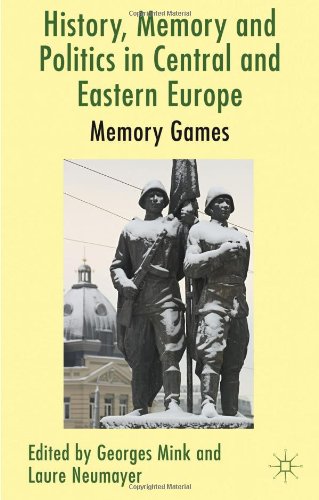

Most ebook files are in PDF format, so you can easily read them using various software such as Foxit Reader or directly on the Google Chrome browser.
Some ebook files are released by publishers in other formats such as .awz, .mobi, .epub, .fb2, etc. You may need to install specific software to read these formats on mobile/PC, such as Calibre.
Please read the tutorial at this link: https://ebookbell.com/faq
We offer FREE conversion to the popular formats you request; however, this may take some time. Therefore, right after payment, please email us, and we will try to provide the service as quickly as possible.
For some exceptional file formats or broken links (if any), please refrain from opening any disputes. Instead, email us first, and we will try to assist within a maximum of 6 hours.
EbookBell Team

5.0
38 reviewsTwenty years after the end of communism, history still sparks intense discussions in the former Soviet bloc, as contested memories, primarily about communism and WWII, are constantly reactivated. Much of what is currently known about memory issues in post-communist countries is limited to state-centered approaches. This volume goes further and highlights two interrelated factors that account for the recent proliferation of memory games in Central and Eastern Europe: the growing number of political and social actors who try to elaborate and impose new memory norms into society, thereby challenging traditional narratives about the past; the 'internationalization' of conflicted memories through the multiplication of arenas for engaging in remembrance politics and devising memory policies, in accordance with norms produced by European organizations. In contrast to a narrow understanding of 'transitional justice', this collection of fourteen case studies situates conflicts around painful histories within the 'ordinary' operating of post-communist societies, concentrating on games played by political and administrative elites, activists and professional groups in various local, national and European venues.